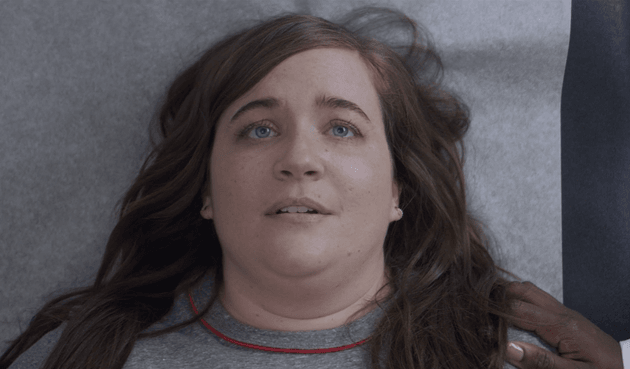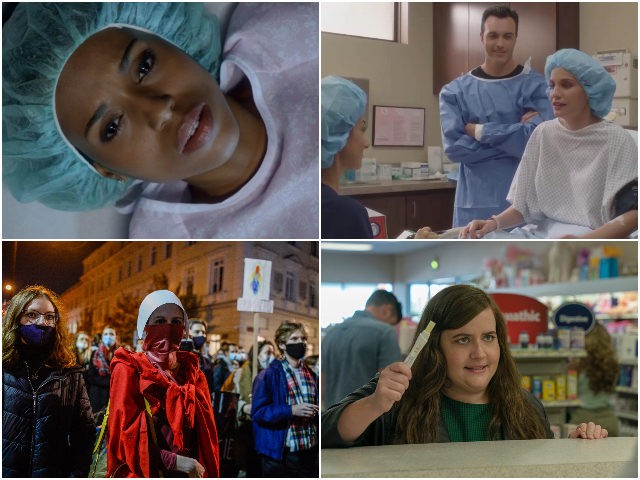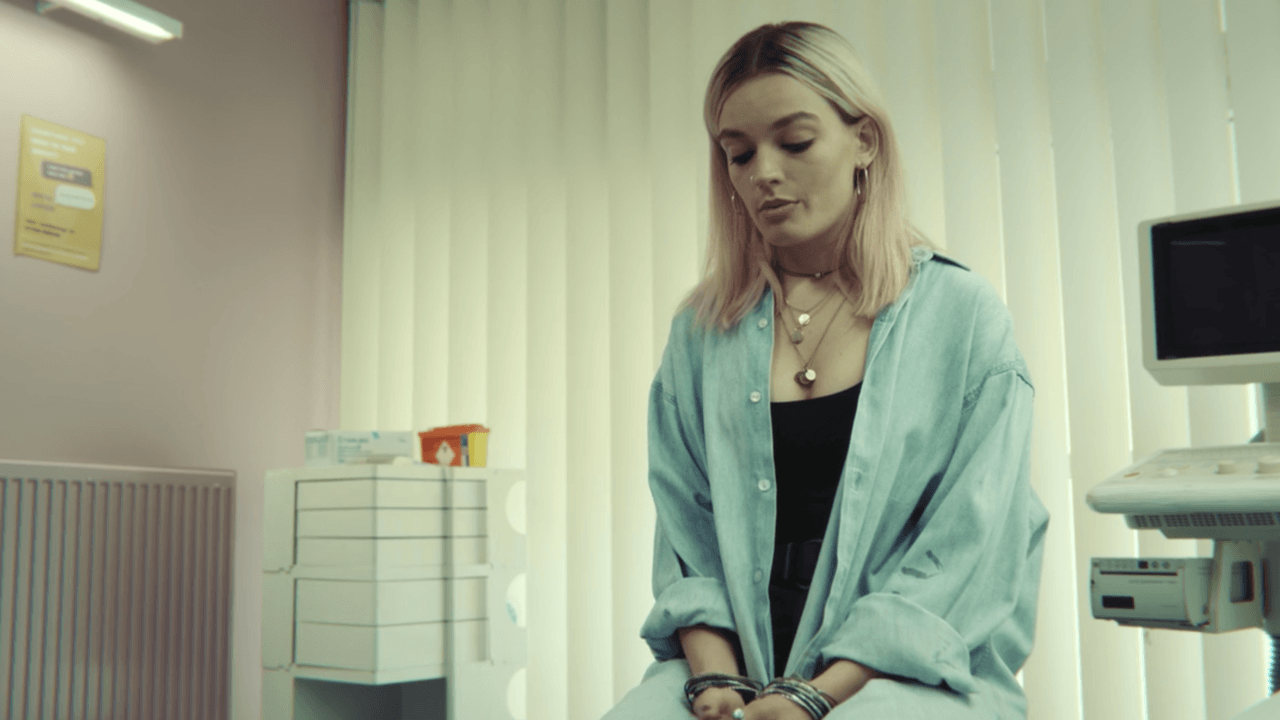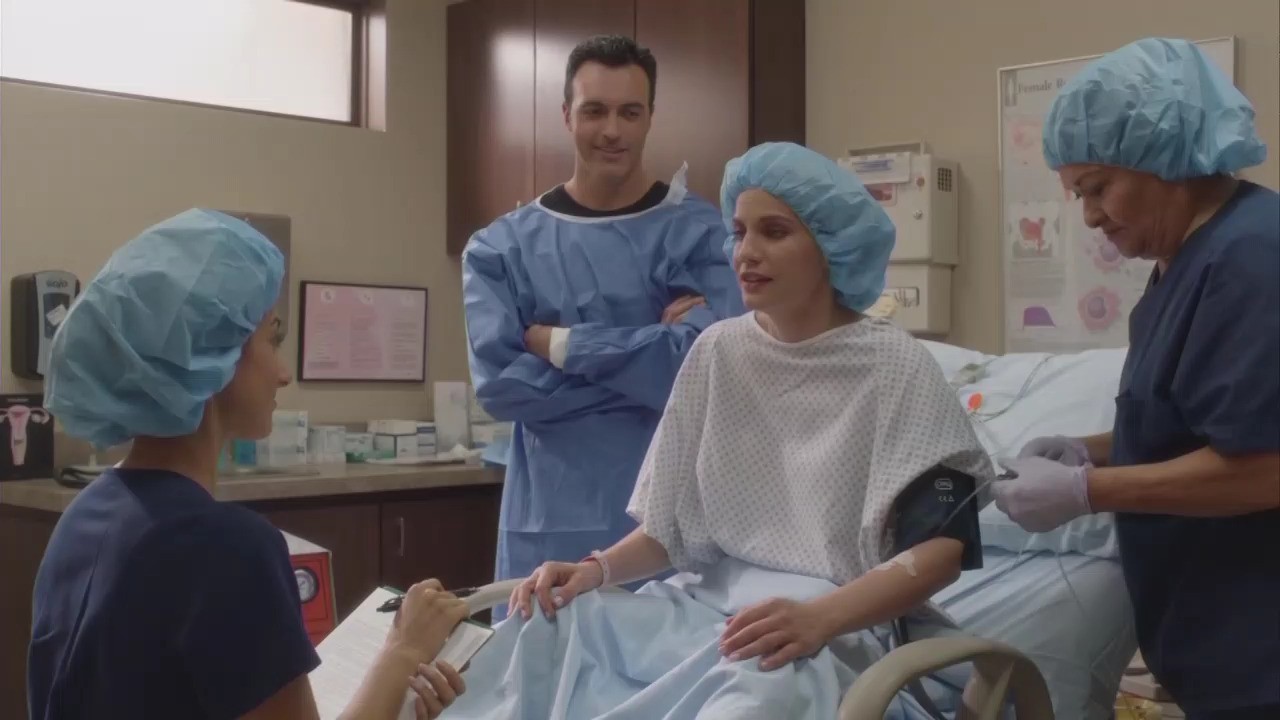A piece published Friday at the women’s magazine Marie Claire called for more film and television storylines with lower-income parents choosing to have abortions in order to portray a loving and beneficial act to children already born.
Contributing Digital Editor Danielle Campoamor argued that most film and TV portrayals of abortion involve teens, instead of lower-income parents who already have children and are faced with another pregnancy.
Abortion, she wrote in the left-wing dialect, is a “safe medical procedure one in four women (as well as trans men and non-binary people) will have by the time they’re 45.”
Feminists, however, have been calling for more abortions in movie and TV storylines for years, hoping viewers will finally equate the procedure with a dental cleaning and reject the reality that abortion ends a human life.
The New York Times reported in July 2019 the entertainment industry was already depicting abortions at “record levels.”
“You’re definitely seeing more of the matter-of-fact ‘I am pregnant, I don’t want to be, I’m going to have an abortion,’” University of California professor Gretchen Sisson told the Times. “And it’s gone way up in 2019.”
Sisson, a researcher with Advancing New Standards in Reproductive Health (ANSIRH), works to track the portrayals of abortion in television and films.

The Hulu series “Shrill” shows main character Annie having an abortion. She later declares that her decision made her feel “really, really good.” (Hulu, 2019)
In 2018, the group saw 18 examples of characters on the screen considering or discussing abortions.
By July 2019, the number of examples was already at 21, the report noted.
Abortion industry giant Planned Parenthood has actually been advising more than 150 film and television productions since 2014, a report at the Washington Post Magazine observed.
“Nobody used to call me,” Caren Spruch, Planned Parenthood’s director of arts and entertainment engagement, told the Post. “I would be watching TV and going to the movies and figuring out who I thought might be open to including [in] these story lines. Now I have a couple of repeat clients. Now people call me.”
Breitbart News observed:
The report noted that Planned Parenthood has advised productions including the 2014 romantic comedy Obvious Child, which features an abortion subplot, as well as the TV shows Shrill and Jane the Virgin.
“If there’s a word or two that isn’t entirely accurate, she [Spruch] helps me drill down on that and make sure that we’re not putting misinformation out there,” said Jennie Snyder Urman, the show runner of Jane the Virgin.
Marie Claire’s Campoamor interviewed people who want to see filmmakers and TV producers show more parents choosing abortion because they believe the procedure is still not “normalized” enough for 30- and 40-somethings.
She found some who believe abortion should be portrayed as a “parenting decision” because the children the parents previously allowed to live will feel more loved knowing their unborn sibling was aborted so their lives could be less stressful.
“Because there are also shockingly few depictions of parents, particularly parents of color, having abortions, it reinforces this false dichotomy between people who have abortions and people who have children,” said Steph Herold, another ANSIRH researcher. “We know the reality is that they’re the same person at different points in their lives.”
Renee Bracey Sherman, executive director of We Testify, a creation of the National Network of Abortion Funds, which represents people who have abortions, told Campoamor:
The majority of people who have abortions are already parenting, but on television and film, it’s nearly always someone young, white, and wealthy who is trying to avoid parenting. But that’s a very small minority of people who have abortions. This fails those of us who have abortions because it doesn’t allow for audiences to stretch their imaginations, empathize with our fictionalized experiences, and learn something outside of the same stereotypical narrative.
Merritt Tierce, a television writer and showrunner, told Campoamor abortions are often difficult to include in a plot because they are “boring.”
She denied the decision to have an abortion is fraught with drama and conflict, but frets inserting an abortion into a storyline requires showing some amount of distress for the character:
Even if a showrunner, creator, or writer is successful in placing an abortion within a storyline or plot, it can actually cause more harm than good: depicting a wrought decision could be misleading when studies have shown most people are certain of their choice, and five years after their abortions 95 percent of patients say it was the right decision for them.
Tierce is currently working on a show that takes place in an abortion clinic. Her goal, as reported by Campoamor, is “to normalize abortion as just another choice in a wide range of decisions people make throughout their lives.”
“I think the most radical reconception that needs to happen with respect to abortion, especially parenting people who have abortions, is for people to realize that it can be a serious act of love to have an abortion,” Tierce said.
“And for people who have kids, that is the number one decision-making factor,” she added. “If they feel like they can’t handle another child, what’s driving that decision is the desire to give the children they already have the best possible life.”
Despite the quest to force the “normalization” of abortion, support for the procedure is at an all-time low in America.
A national poll released in June found a majority of likely voters support restrictions on abortion after 15 weeks of pregnancy and are more likely to back Republican candidates who support that limit, as opposed to Democrats promoting unlimited abortion.
The survey of 1,200 likely voters conducted by OnMessage Inc. found 53 percent of likely voters said they are more likely to vote for a Republican candidate who supports a 15-week limit on abortion, compared to 28 percent who would rather vote for a Democrat who backs unlimited abortion up until the time of birth.
Likely voters who identify as independent favored the Republican side of the issue by a 54-18 percent margin, the survey noted.
A Knights of Columbus/Marist Poll released in January found 58 percent of those surveyed oppose taxpayer funding of abortion, including 31 percent of Democrats, 83 percent of Republicans, and 65 percent of independents.
The poll also found more than three-fourths of Americans (76 percent) back significant restrictions on abortion, including a majority who identify as “pro-choice.”



COMMENTS
Please let us know if you're having issues with commenting.